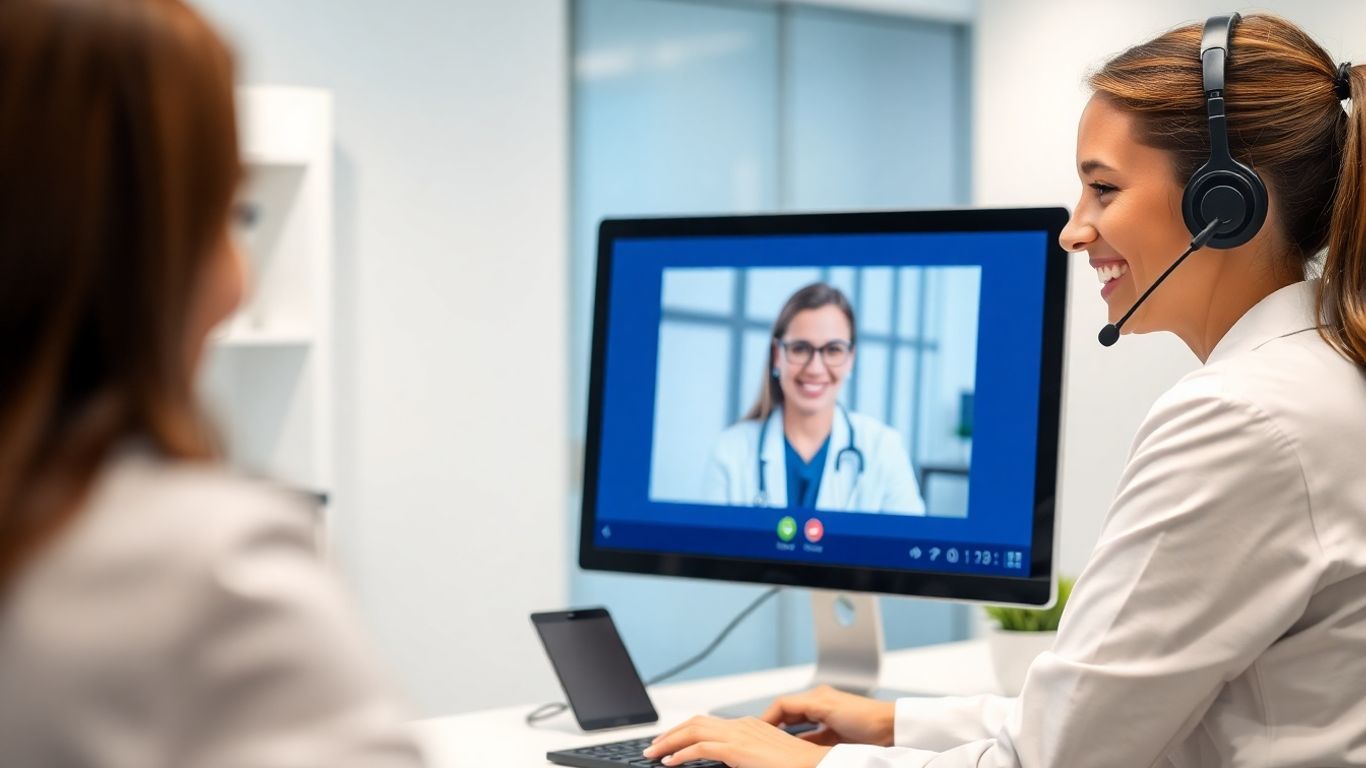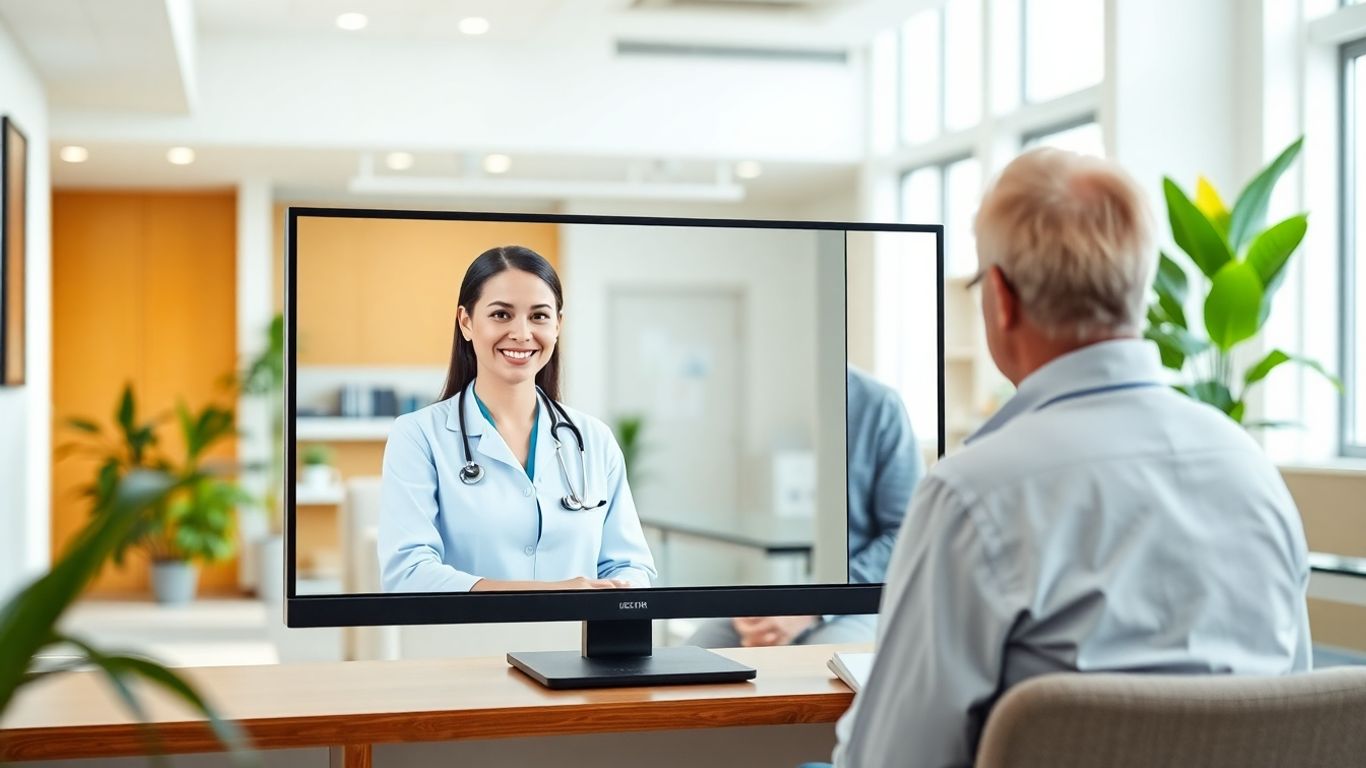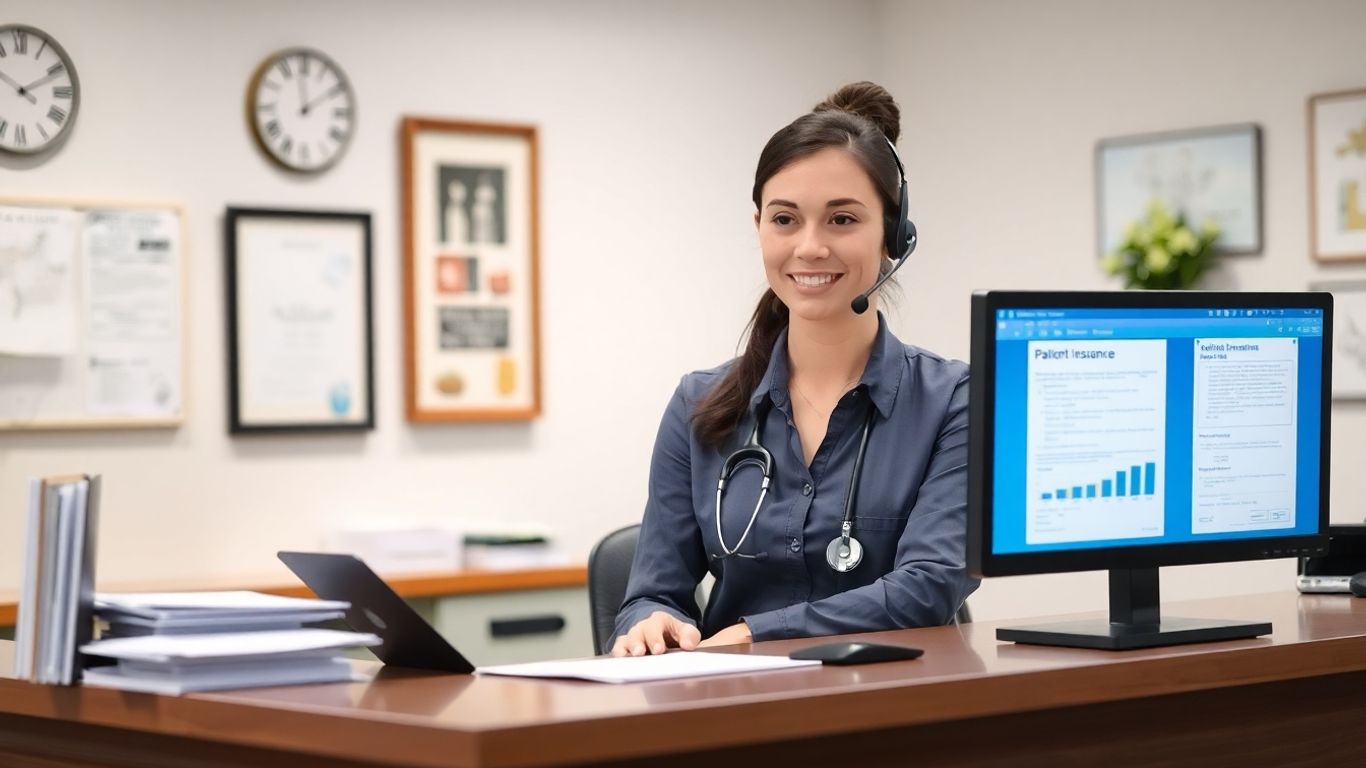Running a medical practice can feel like a juggling act. The phones never stop, paperwork piles up, and patients want answers fast. That’s where virtual medical receptionist services come in. These remote receptionists use technology to handle calls, schedule appointments, and answer questions, all without taking up space in your office. It’s a simple switch, but it can make a big difference for both your staff and your patients.

Modern healthcare is expected to be accessible, simple, and available when patients need it most.
Virtual medical receptionists remove common barriers by making sure assistance is always available — no matter the time or day. Unlike traditional receptionists who work fixed hours, virtual receptionists can support your practice after-hours, during lunch breaks, on weekends, or even on holidays.
Key ways a virtual receptionist improves access:
Having skilled support available around the clock makes it easy for patients to reach your practice, schedule appointments, or get answers to questions — which builds trust and reliability.
With people expecting quick help these days, adding AI phone receptionists to manage calls and bookings keeps your practice organized and patient-focused.

Let’s be honest, running a medical practice isn’t cheap. Between salaries, benefits, office space, and equipment, bills add up fast. Switching to a virtual medical receptionist can save your practice a significant chunk of money without sacrificing service.
Here are some concrete reasons for those cost savings:
Here’s a quick comparison of potential monthly costs:
These days, practices need to manage cash flow carefully. Leaving scheduling and calls to a virtual team frees up resources to invest in patient care, modern equipment, or even just keeping the lights on. And when your phone is always answered, you’re less likely to miss patient opportunities—that’s money back in your pocket.
Patients notice right away when your practice is responsive and makes communication simple. Virtual medical receptionist services make this possible by keeping phone lines open, replying to basic inquiries quickly, and offering scheduling options outside traditional hours. No more waiting on hold for ages or leaving endless voicemails. Instead, people reach someone helpful almost every time, whether it's lunchtime or late in the evening.
Some clear perks patients get include:
Here's a quick look at some impacts from practices using virtual receptionists:
Patients really notice when communication is smooth and answers are quick. For many, just reaching a human-sounding voice who knows what's going on makes the difference between satisfaction and irritation. Reliable, easy communication builds loyalty over time.
Switching to a virtual medical receptionist does more than just free up the phone lines—it overhauls how your entire office runs. By moving routine tasks like call routing, appointment confirmations, and insurance inquiries off your staff's plates, you let your clinical team spend more time with patients and less time stuck in the weeds. That’s a clear win for productivity.
Here’s how practices typically see day-to-day improvements:
Let’s put some numbers on this:
A lot of practices see less burnout, too—nobody’s constantly chasing paperwork or dreading a ringing phone they can’t ignore.
You’ll notice the speed and clarity improve in your clinic’s workflow almost right away. This means shorter wait times and a lot less bottlenecking when things get busy, as covered in tips to optimize dental clinic efficiency.
If you’re feeling like the front desk is running your day instead of you, it might be time to let a virtual assistant pick up the slack.
Let’s face it—managing appointments at a busy medical office can feel like herding cats. Patients call in at all hours, someone inevitably double-books a slot, and before you know it, your calendar is a jumbled mess. But with virtual medical receptionist services, the process becomes a whole lot smoother.
A virtual scheduler can take control of your calendar, booking and confirming appointments around the clock without breaking a sweat. Patients don’t have to wait until office hours to lock in their visit; they can call or even text after hours and get immediate help, thanks to services like AI-powered appointment scheduling.
Here’s what a virtual receptionist can do for appointment management:
And forget about data going missing—these tools often connect straight to your existing booking platforms or electronic medical records, so every change is tracked automatically. No more sticky notes taped to the monitor!
By handing off your scheduling to a virtual receptionist, you’ll have fewer no-shows, a neater calendar, and more time for what really matters: patient care.
A big advantage of using virtual medical receptionist services is the level of skill and preparation that comes with these professionals. Unlike general virtual assistants, medical receptionists are trained specifically for healthcare settings, including medical terminology, HIPAA regulations, and appointment protocols. This makes them capable of handling patient calls with accuracy and confidence, reducing errors and freeing up your team’s time.
Here’s what a dedicated virtual receptionist team typically brings to your medical practice:
Having this outside experience is like getting an extra layer of support—you get new ideas for smoother workflows in your practice. Because these receptionists only have to focus on administrative and patient-facing tasks, their training stays fresh and up-to-date, without your team getting bogged down in constant retraining.
Bringing in virtual medical staff with the right preparation lets your on-site team stay focused on care, while your front-line interactions remain professional and efficient.
For small practices, this makes hiring and onboarding far less stressful, since the provider handles recruitment and ongoing instruction for you. And if you’d like even more flexibility in scaling up or down, a white-label AI phone receptionist setup can let you offer high-level support with little hassle.
If you're worried that a virtual medical receptionist won't connect with your existing tools—think again. Today's AI receptionist systems are designed to fit right in with the tech you already use, lining up with your practice software, CRMs, scheduling apps, and whatever other digital odds and ends your office depends on. This integration means less switching screens, fewer data entry mistakes, and a lot smoother workflows.
What really sets this apart? Let’s look at what you can expect:
Here’s a quick reference table on how virtual receptionists can sync with your office tech:
A great example of all this coming together is AI Front Desk. Their system connects to thousands of different business apps and can even automate routine workflows, making things like notifications or task creation practically instant (virtual receptionist with integrations).
When your front desk tech plays nice with the rest of your systems, everything just feels easier—calls get answered, data stays up to date, and your staff can finally focus on patients instead of fighting with computers.
As your medical practice grows, it gets tricky to keep up with all the calls, appointment requests, and administrative needs piling up. Virtual medical receptionist services are built to scale right alongside your business, so you never worry about staffing gaps or missed opportunities.
Here’s why scalability really matters if you’re expanding:
For example, AI-powered reception platforms like AI Phone Receptionist give you the flexibility to customize call handling, appointment scheduling, and even overflow management. You can turn up support for busy months, then scale back when things are quieter—all without changing your core team.
Scaling with virtual receptionists lets practices stay lean but responsive, so you can focus on patient care instead of scrambling for administrative coverage.
Here’s a quick look at how virtual receptionist costs scale compared to traditional in-office hires:
When your practice is ready to grow, virtual receptionists keep things smooth—no matter how fast your patient list expands.

The success of any medical practice depends a lot on clear and reliable communication with patients. Virtual medical receptionist services keep every patient in the loop, with no calls or messages dropping through the cracks.
Here’s what consistent patient communication typically looks like with virtual receptionist support:
Patients know when their appointment is, who they’ll see, and what to expect. Appointment reminders reduce no-shows. Calls are never lost in voicemail, and urgent situations are passed to staff promptly.
Patients often feel more connected—and less anxious—when their questions are answered right away and information is shared promptly. This steady line of communication builds patient confidence, while making your team’s work more predictable.
Reliable communication isn’t just about talking with patients. Practices that offer ongoing updates, send appointment confirmations, and check in for follow-ups, often see higher treatment acceptance. For example, maintaining strong patient relationships through regular contact can lead to more loyal patients who trust your practice.
Consistent communication is the backbone of a healthcare office that patients trust, and a virtual receptionist makes it second nature.

Verifying insurance can wear down your in-house staff and create delays for patients. But with a virtual medical receptionist, this whole process gets a lot smoother and faster. A virtual receptionist tackles insurance verification in real time—checking coverage, confirming copays, and handling prior authorizations so your team doesn’t have to.
Here's how this typically works day to day:
All of this means less waiting for patients and fewer headaches for your practice. It also reduces chances of denied claims or unpaid bills after the fact. A solid virtual receptionist will follow well-defined protocols, so nothing is forgotten. Some even provide after-hours availability, making sure patients get answers faster, even outside the usual 9-to-5 window.
Accuracy matters a lot in healthcare, especially with insurance. By using virtual support, you keep your records tidy and your patients informed—no more guessing games at check-in. Plus, these services often work with your current scheduling or records system, so information stays up to date across the board. This can be especially important for clinics juggling a steady stream of appointments and insurance details every day. Practices using these services also see a reduction in missed appointments and billing confusion, as mentioned in tips for avoiding dental management mistakes.
Patients want a simple, stress-free check-in when they arrive. Virtual insurance verification is like a pressure release valve for both your staff and your patients—everything works ahead of time, so everyone’s less stressed when it really counts.
Making sure your patients' insurance is checked quickly and correctly is important. Our smart AI receptionist helps you do this without any hassle. Want to save time and avoid insurance mistakes? Visit our website today and see how easy it can be!
So, if you’re still on the fence about bringing a virtual medical receptionist into your practice, here’s the bottom line: it just makes life easier. Patients get their calls answered quickly, your staff isn’t drowning in phone calls, and you don’t have to worry about missing appointments or important messages. Plus, you can save some serious cash compared to hiring more in-house help. The tech is easy to set up, and you can scale up or down as your needs change. In a world where everyone expects fast, friendly service, virtual receptionists help you keep up without burning out your team. At the end of the day, it’s about making your practice run smoother and keeping patients happy. That’s a win-win.
A virtual medical receptionist service is a team or software that handles your front desk tasks like answering calls, booking appointments, and managing patient questions—all from a remote location. This means your practice gets help without someone having to be physically in your office.
Virtual receptionists can answer calls and help patients any time—even after hours or during lunch breaks. This makes it easier for patients to get the help they need, when they need it.
No, setting up a virtual medical receptionist is usually very simple. Most services can get you started in just a few minutes. You just give them information about your practice, and they take care of the rest.
Yes, trustworthy virtual receptionist services follow strict privacy rules like HIPAA. They make sure all patient details stay safe and private.
Absolutely! Virtual receptionists are great at booking, confirming, and reminding patients about appointments. This helps reduce missed visits and keeps your schedule organized.
Most patients won’t notice a big difference. In fact, many patients say they like how quickly their calls are answered and how easy it is to get help.
Yes, many virtual receptionist services can check insurance details and make sure everything is ready before a patient’s appointment. This saves time for your team and your patients.
Virtual receptionist services are usually much cheaper than hiring a full-time, in-office receptionist. You only pay for what you need, which helps you control your costs.
Start your free trial for My AI Front Desk today, it takes minutes to setup!








